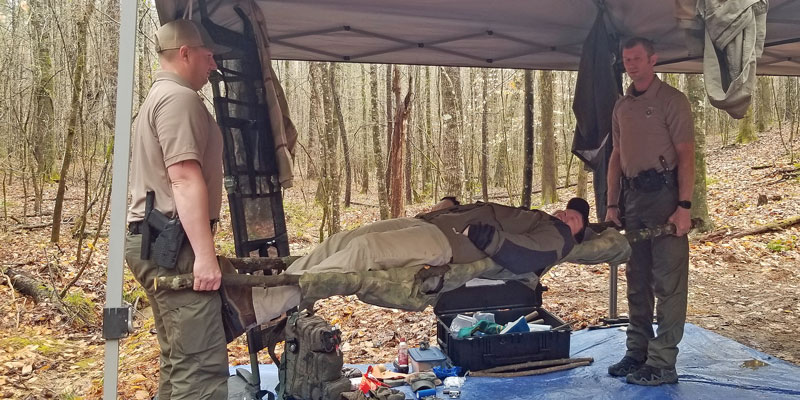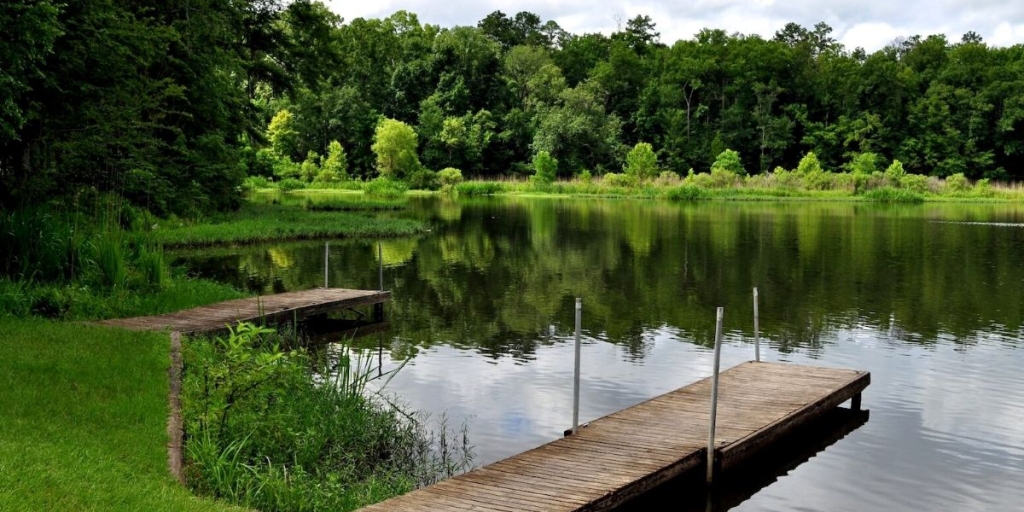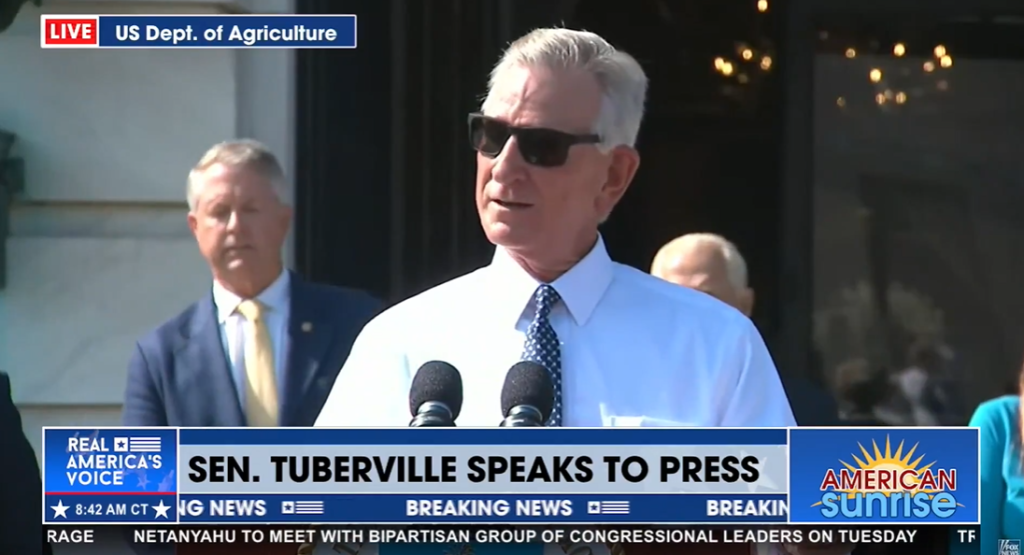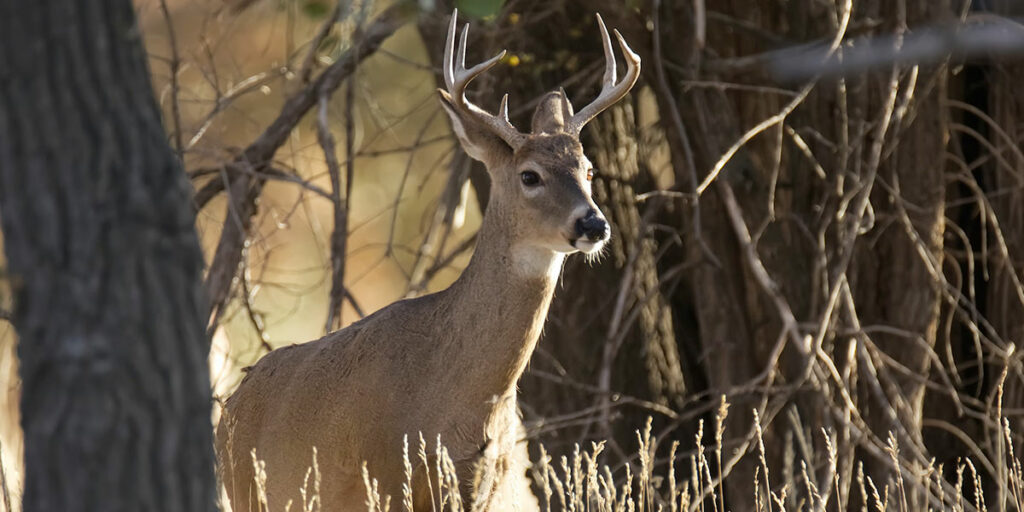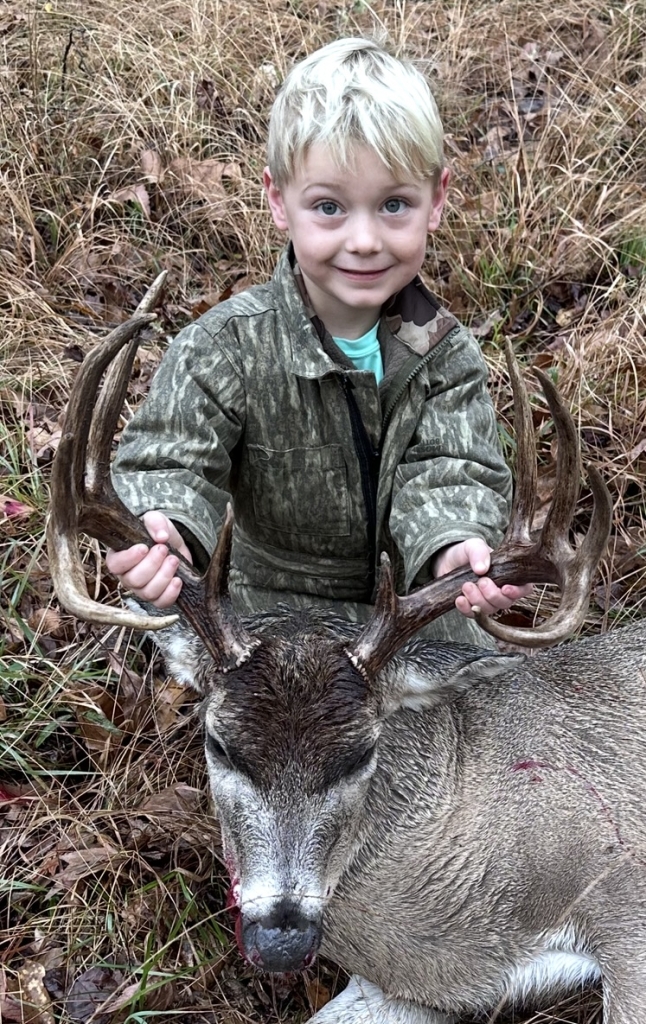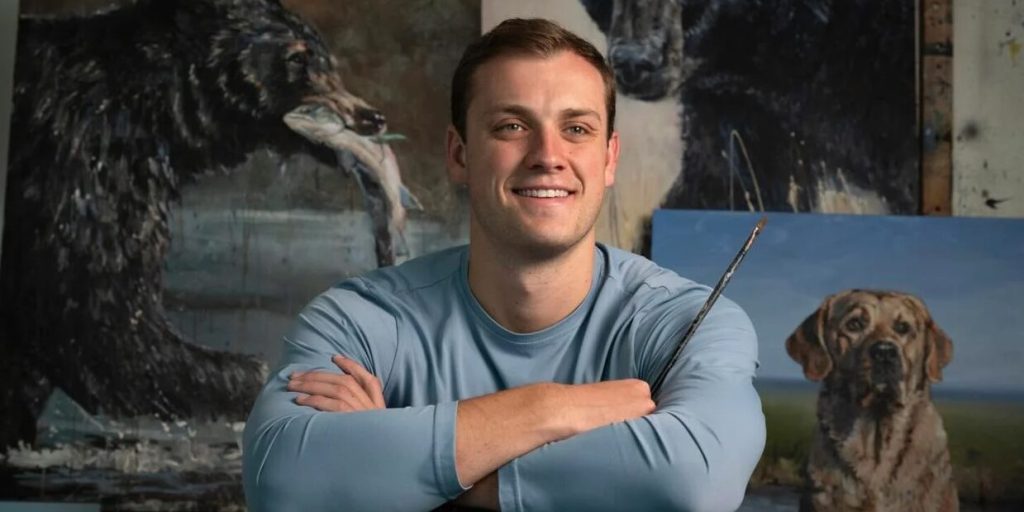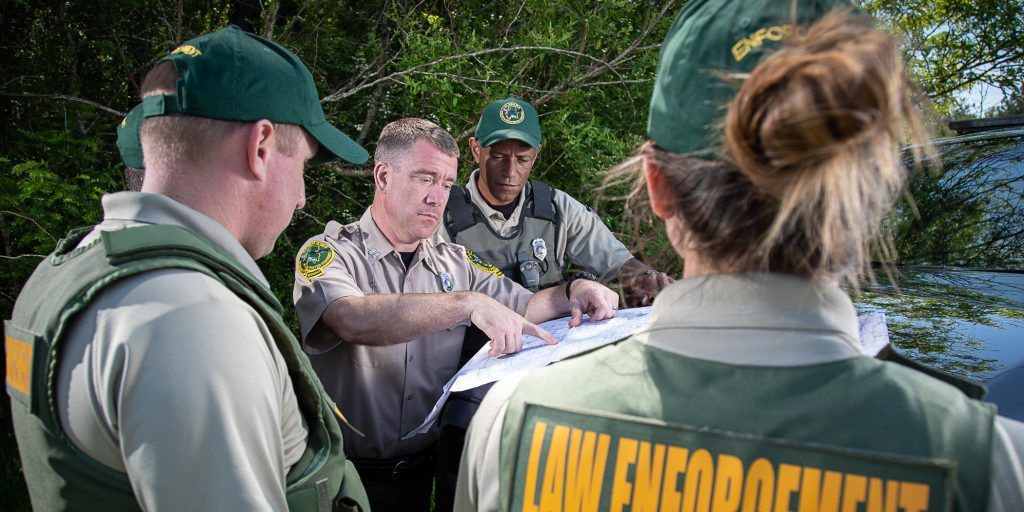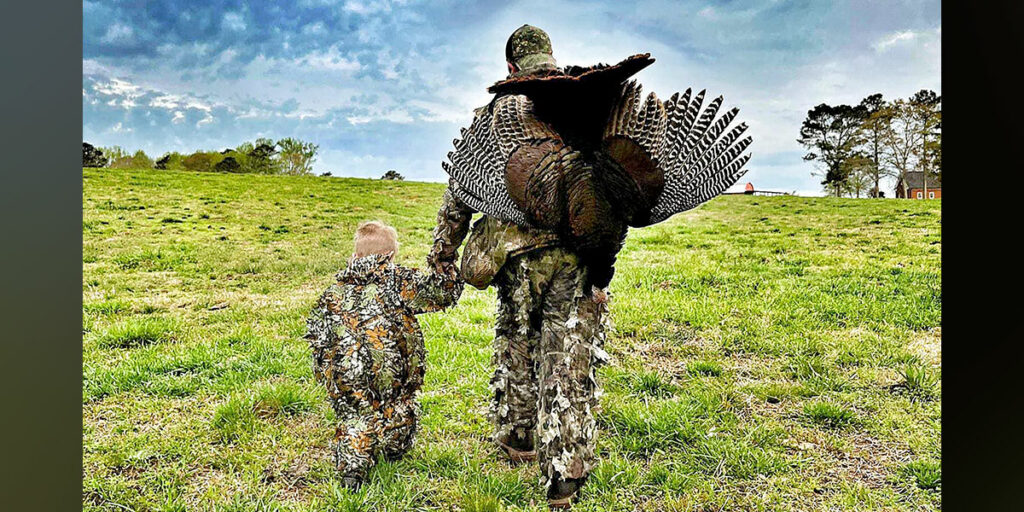Restrictions from the COVID pandemic provided a new learning opportunity this spring for a group of students enrolled in the University of Montevallo’s President’s Outdoors Scholars Program.
Because of restrictions on large gatherings, Outdoors Scholars Director William Crawford and Assistant Director Chris “Scooter” Stano had to get creative with the curriculum for the program that serves students with a passion for wildlife and conservation.
“We usually have a speaker series where we bring in people from the outdoors industry to all of our students,” Stano said. “Due to COVID, we couldn’t put 83 students together at one time. William and I came up with the idea to do small groups in dog training, turkey hunting strategies and trapping. One of the small groups we came up with was survival and camping.”
Stano contacted the Alabama Department of Conservation and Natural Resources’ (ADCNR) Wildlife and Freshwater Fisheries (WFF) Division for help with the survival and camping class.
WFF Enforcement Section Chief Matt Weathers directed Stano to Senior Conservation Enforcement Officer (CEO) Ben Kiser, who has an extensive background in survival training.
With Kiser’s assistance, three classes were set up for the spring semester – fire starting and maintenance, emergency medical care and animal and human tracking.
Kiser’s background fit perfectly for the task of teaching the students survival skills. An Air Force veteran, Kiser taught those skills in the military and continued that training after he returned to civilian life.
“Before I got into law enforcement, I was a wilderness survival instructor,” Kiser said. “I took people into the woods and taught them how to survive. At Montevallo, I sat down with Chris and he asked me what I could do. I told him for a group of 18- to 19-year-olds my first recommendation would be a primitive fire craft class.”
That meant the students were taught how to start a fire using no modern methods, including lighters.
“They learned how to start a fire with a spark and material you find in the woods,” Kiser said. “I broke it down to the stages you need to make a fire – tinder, kindling and fuel. I taught them how to prep it, produce it and then let them do it themselves.”
The second recommendation was for a wilderness medical skills class that taught the students how to deal with accidents or other medical emergencies.
“I tailored it for them. If they’re camping and fall and break a leg, or if they shoot themselves when they’re hunting, or treating a snakebite, they will have the basic skills to more effectively deal with those events. I taught them how to use a tourniquet, pressure bandages, splinting and how to make litters out of materials you find in the woods or the clothes you are wearing. I taught them how to buy life-saving time if they are a long way from a roadway and need help in getting where an ambulance can get to them. They also learned how to stabilize themselves, stop bleeding and get themselves or a buddy to a place where they can receive a higher level of care.”
The third class covered the fundamentals of tracking both humans and animals.
“They learned what to do if they get in woods and get lost,” Kiser said. “It also included the basics of tracking, whether you’re tracking a deer or trying to find your buddy who is lost in the woods.”
To cap the Montevallo classes, students traveled to Cheaha State Park for an overnight camping trip. Kiser was able to join the students on Cheaha Mountain, the highest point in the state, site of one of Alabama’s premier state parks.
“I met them at Cheaha and they showed me what they had learned in the classes,” Kiser said. “They made a fire using nothing but the fundamentals they were taught. They broke it down in the stages of the tinder, the kindling, the fuel. They did everything the right way. I was impressed with that. We talked about the medical training. It was obvious they were paying attention. I didn’t have anyone who wasn’t keyed in. They were excited.”
When Montevallo finalizes its 2021-2022 curriculum, Kiser is more than willing to teach the survival classes again.
“I’m all for getting the kids out of the house, out of the classroom and showing them what we have to offer and furthering their skills and abilities,” he said.
Stano said the survival series will be a part of the Outdoors Scholars Program for the new year.
“The kids really enjoyed the whole series,” Stano said. “We’re doing it again next year and possibly expanding with some other topics. We talked to our students and they really enjoyed the small-group settings and the things they got to learn.”
Stano said the Outdoors Scholars Program started three years ago with 24 students. This fall, he is expecting between 90-95 students to enroll in the program.
Kiser said the Montevallo classes were a condensed version of the classes he teaches for the Enforcement Section’s Rural Operations Training Program that WFF offers to other law enforcement, first responders and new Enforcement Section hires.
Carter Hendrix, Assistant Chief of the WFF’s Enforcement Section, said people don’t have to be a first responder to benefit from outdoors survival skills.
“The wilderness survival training, like medical care and fire starting, can be useful to anybody,” Hendrix said. “And the tracking can be used if you’re trying to find a lost family member or finding your way back out of the woods. Those skills can be utilized whether or not you’re a first responder. Many of these students at Montevallo are involved with the school’s fishing team or archery team. These are skills they can use whether in their college careers or when they graduate and continue to enjoy the outdoors.”
As part of the Outdoors Scholars program, Montevallo fields a bass fishing team and an archery team. The Montevallo bass anglers are leading the Bass Pro Shops Collegiate Bass Fishing Series, and the archery team is competing in the USA Archery Collegiate Target Nationals this week in Virginia.
“It may sound unusual to be teaching college kids survival skills, but at the same time, we’ve been teaching hunter education since the early 1970s, and basic survival and first-aid skills have always been an element of those courses,” Hendrix said. “The Montevallo classes were extremely well-received. This is a good thing for us. These students might not ever come in contact with a game warden otherwise. We consider this a valuable tool, whether teaching outdoors skills or responding to complaints they might have on their property. This is an outreach effort in the same way we utilize our instructors to teach and assist rescue squads in survival and tracking to be able to find lost children or Alzheimer’s patients. We’re always open to assisting the public, whether it be college students or community groups, in educating them on outdoor survival. We’ve been ‘off the pavement’ law enforcement since 1907.”
David Rainer is an award-winning writer who has covered Alabama’s great outdoors for 25 years. The former outdoors editor at the Mobile Press-Register, he writes for Outdoor Alabama, the website of the Alabama Department of Conservation and Natural Resources.




